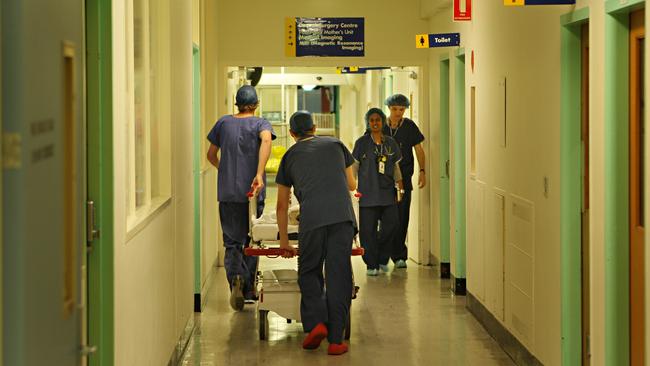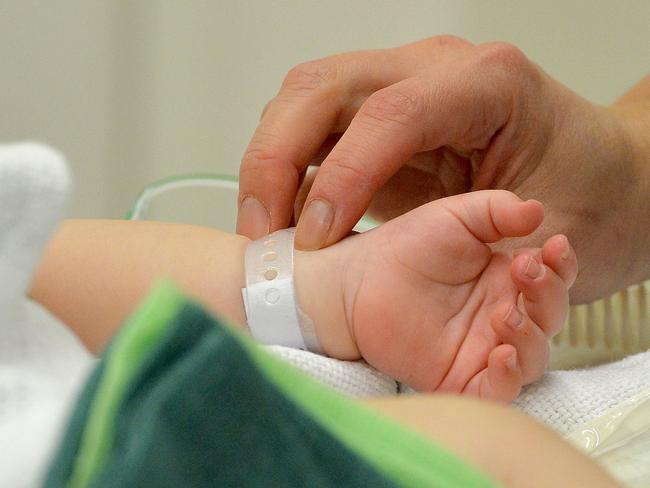Research links general anaesthetic use in children to poor performance in NAPLAN
EVERY parents fears their child going into surgery, but new research has found general anaesthetic may also have an effect on academic performance.

Illness
Don't miss out on the headlines from Illness. Followed categories will be added to My News.
CHILDREN who have a general anaesthetic in the first four years of life have substantially worse literacy and numeracy skills a troubling new study has found.
Sydney University researchers compared the developmental and NAPLAN results of nearly 38,000 children who had a general anaesthetic to 197,000 who had no exposure to anaesthetic.
Compared to children with no exposure to general anaesthesia, those exposed to general anaesthesia had a:
*17 per cent increased risk of poor child development
*34 per cent increased risk of lower numeracy scores on school tests
*23 per cent increased risk of lower reading scores on school tests.
Sydney University lecturer Dr Justin Skowno, a senior staff specialist in Paediatric Anaesthesia at the Children’s Hospital, Westmead said determining exactly what was causing this effect was not easy.
“The children receiving a general anaesthetic in this study also had surgery, and often had other associated medical conditions,” he said.
The researchers found children who’d had only one hospitalisation involving general anaesthesia, did not have poorer development or reduced reading scores, however the risk of poor numeracy scores remained.

“There are many reasons why a child requires surgery or investigation, and, in some cases, this may be lifesaving or unavoidable,” said the study’s senior author, Professor Natasha Nassar of the University of Sydney.
“For these children, our findings suggest that it is important to follow-up and monitor their literacy and numeracy skills when they reach school, and ensure early intervention, if required.”
“There are some procedures where alternative approaches or management may be possible, but the majority of surgeries in young infants and children cannot easily be postponed.”
“Parents can certainly discuss with their doctor and explore whether these procedures can be avoided, combined with other procedures, delayed to older ages or treated with alternatives to surgery, or other methods of sedation,” said Dr Skowno.
The researchers measured the children’s development using the Australian version of the Early Development Instrument (AvEDI), a nationwide triennial assessment of child development.
It includes results from teachers’ assessment of five developmental domains: physical health and wellbeing, emotional maturity, communication skills and general knowledge, language, and cognitive skills (numeracy and literacy) and social competence.
The Children’s academic performance was measured using test results from the Grade 3 NAPLAN test which covers reading, writing, spelling, grammar and punctuation, and numeracy.
